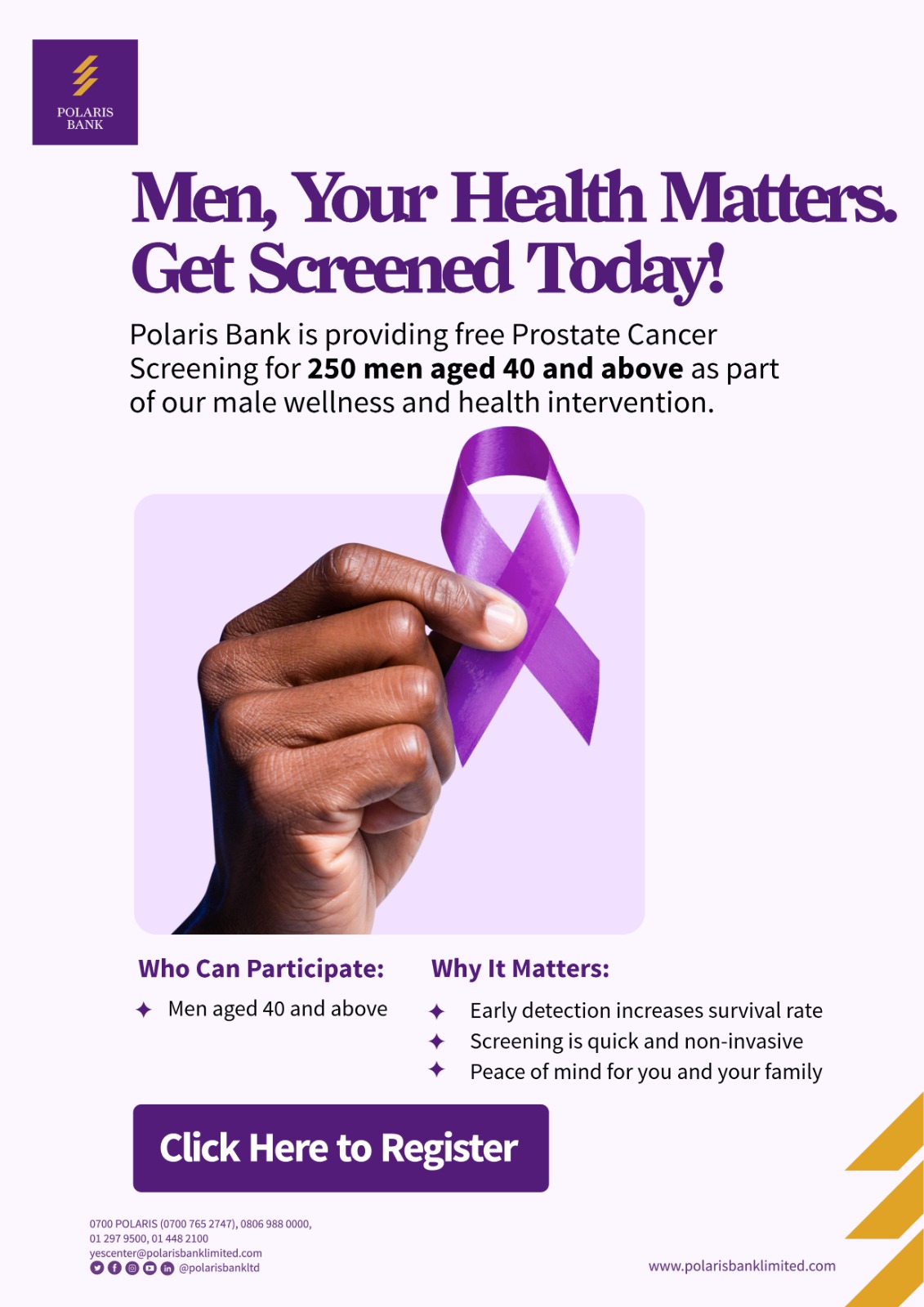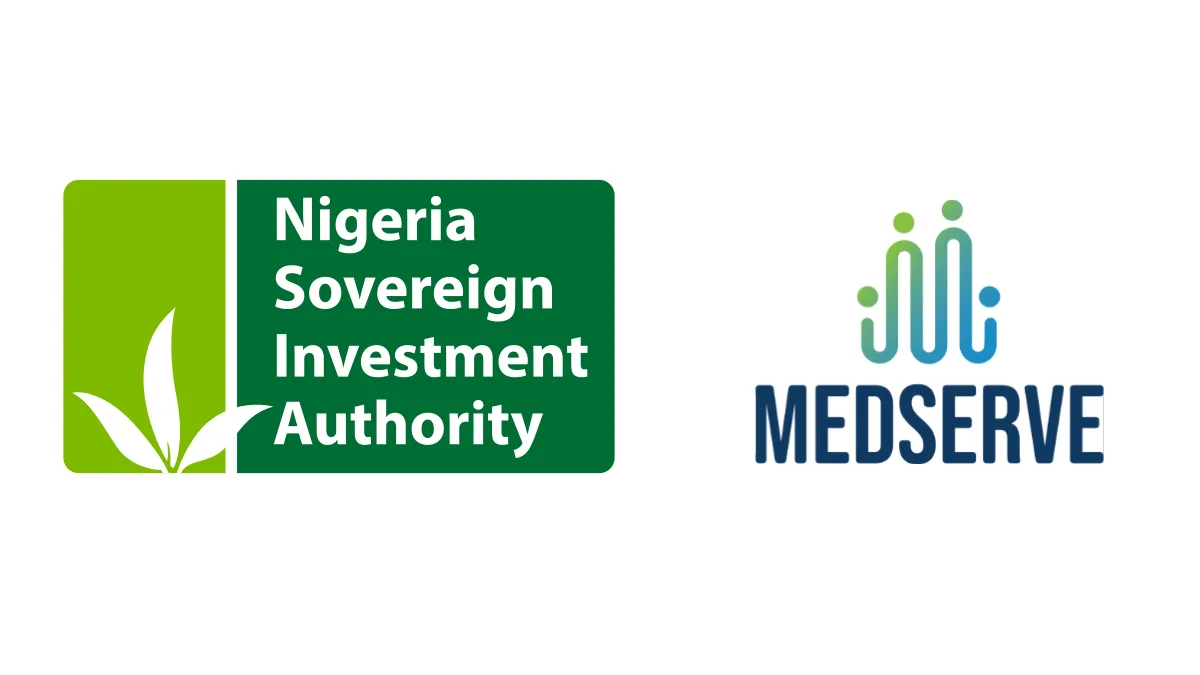Health
Pfizer, Sickle Cell Group Seek Government’s Support

By Modupe Gbadeyanka
Government has been urged to give more support to treatment, management and control of sickle cell disease in Nigeria.
This plea was made by the Sickle cell Support Society of Nigeria (SCSSN) and a leading pharmaceutical firm, Pfizer.
Speaking at a conference organised by SCSSN in support of Pfizer in Enugu last week, Professor of Hematology at the Muhumbili University of Tanzania, Lucio Luzzatto, who was the keynote speaker, echoed sentiments shared by others that government must pass a bill on sickle cell control and management to better insure the life of the people living with the disease.
On his part, Medical Director of Pfizer, Dr Kodjo Soroh, submitted that the high death rate of sickle cell disorder can be prevented through proper management and increased disease awareness programmes in rural areas.
He said there is no way government can better manage the situation without making policies that will guarantee treatment for people with the disease.
The Medical Director stressed that Pfizer will continue to support activities on how policies can be improved to adequately impact on Sickle cell patients.
According to a Professor of Paediatric Haematology and Chainman, Sickle Cell Support Society of Nigeria, Professor Adekunle Adekile, government need to be fully involved in order to reduce the burden of the disease in the communities.
He also identified poor leadership on the part of the government as being responsible for the snail paced action against Sickle Cell in Nigeria and called on the National Assembly to revisit the Sickle Cell Act brought before the house four years ago with a view to passing it.
“The chunk of the problem lies on the Government because over the years, they have paid lip service to Sickle Cell Disease control and management.
“Government should make policies on SCD a serious one so that life of patients can be insured. The National Assembly should revisit and possibly pass the Sickle Cell Act to ensure that people with the disease are covered”, he said.
According to Prof Adekile, Sickle Cell is a disease that is common all over the world, particularly in Nigeria which has the largest burden with a total number of 1,500 children born every year with the disease.
Prof Adekile said that the problem of Sickle cell is pervasive and many of the patients live in the rural areas, pointing out that the care in the tertiary or secondary centres are not enough.
He regretted that the government has not paid adequate attention to tackling Sickle Cell Disease noting that the disease cannot be controlled until a comprehensive National policy for the Control and management of the patients is introduced.
On her part, the Director, Corporate Affairs Pfizer for Sub-Saharan Africa, said the community networking is critical to achieving the aim of reducing the burden of Sickle Cell in our communities. She noted that Sickle Cell is not a death sentence even as she advised parents to always identify with organisations that are committed to tackling the scourge.
Also speaking during the conference, the Director, Comprehensive Sickle Cell Centre in Ghana, Professor Kwaku Frempong said that most people who are born with Sickle Cell disease in Africa are not diagnosed and many of them die as children. He observed that Government are not aware of the impact of SCD on childhood mortality while noting that there is no country in the whole of Africa that has programmes for new born screening.
“Our Government must step up measures and provide some supplements so that people can be treated as the medical cost is usually beyond what people can manage,” he said.
The Marketing Officer of Assene-Laborex Limited, a subsidiary of Biomedomics, Pharm Santos Onuigbo, charged young people to know their genotype early enough before going into marriage, adding that the company is committed to ensuring that people get the awareness about their state and better treatment against the disease.
He maintained that the company is partnering with Non-Governmental Organizations to get maximum grassroots mobilisation against the disease.
A participant at the conference, Miss Grace Ocheigo, a student participant from Obafemi Awolowo University, OAU was all praise to SCSSN for another opportunity to interact and meet people that would have cost much to meet were it not for the meeting. The student participant said the student have a greater role to play in curbing the burden of the disease.
“I want stakeholders to use students in the campaign to reduce the burden of the disease in the country because they are more vibrant and are closer to SCD patients that are older people.
“Young people relate more their problems to their peers and when these students are speaking it will have more effects because youths are naturally keen to listen to their mates on an issue. By so doing, they open up, the students will then know how to follow them up” she said.
She appealed to the Government and the NGOs to make screening materials available to medical students so that they can be fully engaged in the process in as much as grassroots mobilisation is concerned.
Other participants at the conference praised the meeting and said it gave them the opportunity to ask questions pertaining to clinical practice which were answered by seasoned practitioners.
They also said the meeting enabled them to network and be involved in collaborative research into new trends in Sickle Cell disease.
Sickle Cell is a disease that is not as popular as malaria, tuberculosis and AIDS, but tons of babies born each year around the World inherit the disorder according to reports.
The disease is got by inheriting two copies of a defective gene from each patient. In the process, the red blood cell gets collapsed, forming a crescent moon-like shape, which make it difficult for oxygen to be transported to all parts of the body.
The conference drew participants, stakeholders, partners and sponsors from different part of the world.
The programme, themed ‘Reducing the burden of Sickle cell disease in our communities,’ was anchored on raising awareness for Sickle cell disease, increasing the understanding of the disease among the communities health workers, to review the activities of the society since the last one held was two years ago, with a view to hearing from SCSSN members who were sponsored on scholarship to pursue their post-graduate degrees in Brazil, to outline research and training priorities, update current level of knowledge about the different aspects of the pathophysiology and management of Sickle cell and to hold a meeting of the West African Sickle Cell Network, high Nigeria is a host country.
The 3-day conference was kicked off with a pre- conference workshop with community health workers in the State.
Health
Polaris Bank Sponsors Free Breast, Prostate Cancer Screenings

By Modupe Gbadeyanka
To commemorate World Cancer Day observed on Wednesday, February 4, 2026, Polaris Bank Limited is bankrolling free screenings for breast and prostate cancers across the country.
The financial institution partnered with a non-governmental organization (NGO) known as Care Organization and Public Enlightenment (COPE) for this initiative.
At least 100 women would be screened during the exercise, scheduled for Saturday, February 21, 2026, at the C.O.P.E Centre on 39B, Adeniyi Jones Avenue, Ikeja, Lagos, from 10:00 am to 2:00 pm.
The exercise will be conducted by trained health professionals and volunteers, ensuring participants receive both screening services and educational guidance on cancer prevention, self-examination, and follow-up care.
To participate in the free breast cancer screening programme, the applicants must be women, must be Polaris Bank account holders, and must have registered ahead of the day via bit.ly/BCS2026, with selection based on early and confirmed submissions.
Polaris Bank said the initiative was designed to promote awareness, screening, early detection, and preventive care, reinforcing its belief that access to health services is a critical foundation for individual and economic well-being.
The organization is already supporting an on-going free prostate cancer screening programme for 250 men aged 40 years and above across Nigeria.
The prostate cancer screening is being conducted at the Men’s Clinic, situated at 18, Commercial Avenue, Sabo, Yaba, Lagos, providing accessible, professional medical support for male participants seeking early detection and preventive care for prostate cancer.
Both initiatives (free breast and prostate cancer screenings) directly aligns with the United Nations Sustainable Development Goals, particularly SDG 3 (Good Health and Well-being) through improved access to preventive healthcare and early detection services, SDG 5 (Gender Equality) by prioritizing women’s health and empowerment, and SDG 17 (Partnerships for the Goals) through strategic collaboration with civil society organizations such as C.O.P.E to deliver community-centered impact.
Educational materials, community engagement sessions, and digital awareness campaigns will be deployed to reinforce key messages around early detection, lifestyle choices, and the importance of regular medical check-ups.
The Head of Brand Management and Corporate Communications for Polaris Bank, Mr Rasheed Bolarinwa, emphasised that early detection remains one of the most effective tools in the fight against cancer.
Health
NSIA Gets IFC’s Naira-financing to Scale Oncology, Diagnostic Services

By Adedapo Adesanya
International Finance Corporation (IFC), a subsidiary of the World Bank, and the Nigeria Sovereign Investment Authority (NSIA) have partnered to provide Naira-denominated financing to NSIA Advanced Medical Services Limited (MedServe), a wholly owned healthcare subsidiary of the country’s wealth fund.
Supported by the International Development Association’s Private Sector Window Local Currency Facility, this financing enables MedServe to scale critical healthcare infrastructure while mitigating foreign exchange risks. IFC is a member of the World Bank Group.
The funds will support MedServe’s expansion program to establish diagnostic centers, radiotherapy-enabled cancer care facilities, and cardiac catheterisation laboratories across several Nigerian states.
These centres will feature advanced medical technologies, including CT and MRI imaging, digital pathology labs, linear accelerators, and cardiac catheterisation equipment, thereby enhancing specialised diagnostics and treatment.
MedServe provides sustainable service delivery with pricing that matches local income levels, helping ensure broader access to affordable oncology care for low-income patients.
The initiative will deliver over a dozen modern diagnostic and treatment centers across Nigeria, create 800 direct jobs, and train more than 500 healthcare professionals in oncology and cardiology specialties.
The total project size is $154.1 million, with IFC contributing roughly N14.2 billion ($24.5 million) in long-tenor local currency financing, marking IFC’s first healthcare investment in Nigeria using this structure.
This comes as Nigeria advances its aspirations for Universal Health Coverage. This partnership provides an opportunity to leverage private investment to complement government efforts to expand oncology care and diagnostic services.
IFC’s provision of long-tenor Naira financing addresses a significant market gap and unlocks institutional capital for healthcare infrastructure with strong development upside while MedServe’s co-location strategy with public hospitals maximises capital efficiency and strengthens the public-private ecosystem, establishing a replicable platform for future investment.
“This partnership with IFC represents a significant milestone in NSIA’s commitment to strengthening Nigeria’s healthcare ecosystem through sustainable, locally anchored investment solutions,” said Mr Aminu Umar-Sadiq, managing director & chief executive of NSIA.
He added, “By deploying long-tenor Naira financing, we are addressing critical infrastructure gaps while reducing foreign exchange risk and ensuring that quality diagnostic and cancer care services are accessible to underserved communities. MedServe’s expansion underscores our belief that commercially viable healthcare investments can deliver strong development impact while supporting national health priorities.”
“This ambition is consistent with our broader vision for Africa, one where resilient health systems and inclusive growth reinforce each other to deliver long-term impact across the continent,” said Mr Ethiopis Tafara, IFC Vice President for Africa.
Health
Lagos Steps up Mandatory Health Insurance Drive

By Modupe Gbadeyanka
Efforts to entrench mandatory health insurance through the Ilera Eko Social Health Insurance Scheme in Lagos State have been stepped by the state government.
This was done with the formal investiture of the Commissioner for Health, Professor Akin Abayomi, and the Special Adviser to the Governor on Health, Mrs Kemi Ogunyemi, as Enforcement Leads of the Lagos State Health Scheme Executive Order and ILERA EKO Champions.
The Commissioner described the recognition as both symbolic and strategic, noting that Lagos is deliberately shifting residents away from out-of-pocket healthcare spending to insurance-based financing.
“We have been battling with how to increase enrolment in ILERA EKO and change the culture of cash payment for healthcare. Insurance is a social safety net, and this mindset shift is non-negotiable,” he said.
He recalled that Lagos became the first state to domesticate the 2022 National Health Insurance Authority (NHIA) Act through an Executive Order issued in July 2024, making health insurance mandatory. He stressed that the decision reflected the Governor’s strong commitment to healthcare financing reform, adding, “When Mr. Governor personally edits and re-edits a document, it shows how critical that issue is to the future of Lagosians.”
Mr Abayomi also warned against stigmatisation of insured patients, describing negative attitudes towards Ilera Eko enrolees as a major barrier to uptake. “If someone presents an Ilera Eko card and is treated as inferior, uptake will suffer. That must stop,” he said, pledging to prioritise insurance compliance during facility inspections. “The key question I will keep asking is: ‘Where is the Ilera Eko?’”
In her remarks, Mrs Ogunyemi, said the enforcement role goes beyond a title, stressing that the health insurance scheme is now law.
“This is about Universal Health Coverage and equitable access to quality healthcare for everyone in Lagos State,” she said, noting that ILERA EKO aligns with the state’s THEMES Plus Agenda.
She commended the Lagos State Health Management Agency (LASHMA) for aggressive sensitisation efforts across the state, saying constant visibility was necessary to address persistent gaps in public knowledge. “People are still asking, ‘What is Ilera Eko?’ ‘Where do I enrol?’ Those questions tell us the work must continue,” she said.
She urged all directors and health officials to mainstream Ilera Eko promotion in every programme and engagement, emphasising that responsibility for health insurance advocacy does not rest with LASHMA alone. “When people come with medical bills, the first question should be: are you insured?” she said, adding that early enrolment remains critical as premiums rise over time.
Earlier, the Permanent Secretary of LASHMA, Ms Emmanuella Zamba, said the investiture marked a critical step in positioning leadership to drive enforcement of the Executive Order across the public service.
“What we are undertaking is pioneering in Nigeria. All eyes are on Lagos as we demonstrate how mandatory health insurance can work,” she said.
Ms Zamba disclosed that enforcement nominees across Ministries, Departments and Agencies have been trained, with a structure in place to ensure compliance beyond the health sector.
According to her, “This initiative cuts across the entire public service, particularly public-facing MDAs, in line with the provisions of the Executive Order.”
She explained that the formal designation of the Commissioner and the Special Adviser as Enforcement Leaders was meant to strengthen compliance, alongside the Head of Service, while also recognising their consistent advocacy for universal health coverage. “This decoration is to amplify their roles and appreciate the leadership they have shown,” she said.
-

 Feature/OPED6 years ago
Feature/OPED6 years agoDavos was Different this year
-
Travel/Tourism9 years ago
Lagos Seals Western Lodge Hotel In Ikorodu
-

 Showbiz3 years ago
Showbiz3 years agoEstranged Lover Releases Videos of Empress Njamah Bathing
-

 Banking8 years ago
Banking8 years agoSort Codes of GTBank Branches in Nigeria
-

 Economy3 years ago
Economy3 years agoSubsidy Removal: CNG at N130 Per Litre Cheaper Than Petrol—IPMAN
-

 Banking3 years ago
Banking3 years agoSort Codes of UBA Branches in Nigeria
-

 Banking3 years ago
Banking3 years agoFirst Bank Announces Planned Downtime
-

 Sports3 years ago
Sports3 years agoHighest Paid Nigerian Footballer – How Much Do Nigerian Footballers Earn














1 Comment